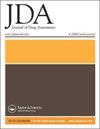Development of a specialty pharmacy productivity benchmarking model
IF 2.4
引用次数: 0
Abstract
Abstract Background: Benchmarking in healthcare is used to evaluate productivity on the basis of workflows, policies and performance in hopes of optimizing current practices and improving patient outcomes. Benchmarking has long been used in pharmacy practice, whether in tracking dispensing activities or optimizing clinical workflows. Internal benchmarking allows organizations to examine internal processes to determine allocation of institutional resources. Currently there is no validated model to evaluate productivity in specialty pharmacy workflows. Aims: To develop and validate a specialty pharmacy productivity benchmarking tool. Methods: A timer tool was developed to allow pharmacists to track the time spent performing activities which we identified as key performance indicators. Key performance indicators were identified as: prior authorizations, appeals of coverage denial, financial assistance activities, clinical onboarding activities, care plan activities and clinical assessments. These times were utilized to establish benchmarks for each key performance indicator. Raw activity number was tracked for each branch utilizing data from specialty management software database, Therigy. From these data, benchmark standards were derived, and all branches were evaluated. Results: Benchmarking standardized to the inflammatory diseases branch showed a near 2.5 fold elevation in workload in the hematology and oncology branch. The pulmonary branch showed a decreased workload compared to inflammatory diseases by approximately 35%. Neurology and infectious diseases within the 20% relative workload range of inflammatory diseases and are considered to have an equal productivity level. Conclusions: Results from this study provide a solid foundation for this benchmarking tool. Moving forward with this model the addition of technician metrics and a broader collection of performance indicators across a larger data collection period will be required to more fully develop the model.专业药房生产力基准模型的开发
摘要背景:医疗保健中的基准测试用于根据工作流程、政策和绩效评估生产力,以期优化当前实践并改善患者结果。长期以来,无论是在追踪配药活动还是优化临床工作流程方面,基准测试都被用于药房实践。内部基准使各组织能够审查内部程序,以确定机构资源的分配。目前,还没有经过验证的模型来评估专业药房工作流程中的生产力。目的:开发和验证专业药房生产力基准测试工具。方法:开发了一个计时器工具,使药剂师能够跟踪我们确定为关键绩效指标的活动所花费的时间。关键绩效指标被确定为:事先授权、拒绝承保的上诉、财务援助活动、临床入职活动、护理计划活动和临床评估。利用这些时间为每个关键业绩指标建立基准。利用专业管理软件数据库Therigy的数据跟踪每个分支机构的原始活动编号。根据这些数据,得出了基准标准,并对所有分支机构进行了评估。结果:炎症性疾病分支的标准化基准显示,血液学和肿瘤学分支的工作量增加了近2.5倍。与炎症性疾病相比,肺支的工作量减少了约35%。神经病学和传染病在炎症性疾病20%相对工作量范围内,被认为具有同等的生产力水平。结论:本研究的结果为该基准测试工具提供了坚实的基础。推进该模型,需要在更大的数据收集期内增加技术人员指标和更广泛的绩效指标集合,以更全面地开发该模型。
本文章由计算机程序翻译,如有差异,请以英文原文为准。
求助全文
约1分钟内获得全文
求助全文

 求助内容:
求助内容: 应助结果提醒方式:
应助结果提醒方式:


